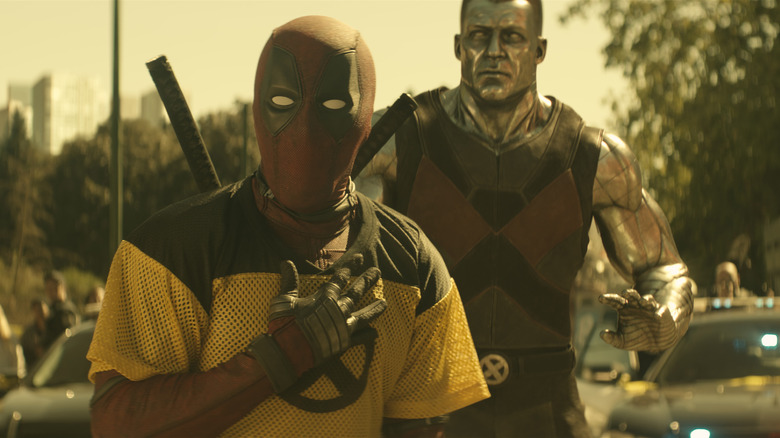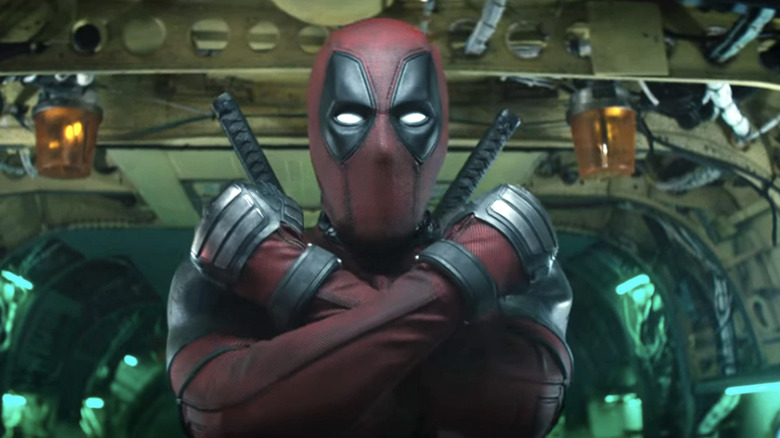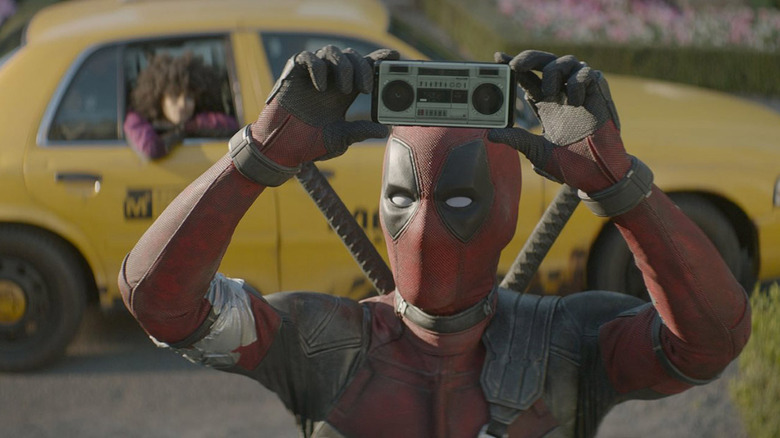David Leitch Had A Tightrope To Walk While Directing Deadpool 2
The "Deadpool" films were a production that came from a place of passion. The first "Deadpool" film fought tooth and nail to come to fruition. A few leaked demo reels later, director Tim Miller with star Ryan Reynolds brought a true-to-form R-rated "Deadpool" to audiences in 2016, quickly becoming one of the most successful R-rated films of all time. Moreover, "Deadpool" showed the comic book film landscape that you didn't need to be restricted to a PG-13 rating to be successful. When "Deadpool 2" finally came around, creative differences led to director Tim Miller's parting with the franchise.
While screenwriters Rhett Reese and Paul Wernick stayed with Ryan Reynolds, "Deadpool 2" needed a new director to fill in Miller's place. Such a tight-knit creative team receiving a new addition had a chance of not going over well. Luckily for us, David Leitch (who was an uncredited co-director of the first "John Wick" film) would helm the project and deliver a sequel that recaptures the magic of the first "Deadpool" while managing to provide something new. The pure passion and dedication to the source material found in "Deadpool" would certainly be a challenge to replicate. David Leitch would find himself having to balance the humorous and macabre tone that comes with any "Deadpool" story while also upping the ante in action and fight choreography.
A balancing of humor with tragedy
In an interview with Collider, Ryan Reynolds looked back on "Deadpool 2" and Leitch's direction that helped to elevate the material from the page onto the big screen:
"Dave [Leitch] elevated everything across the board. You need to sort of put him in this fiction hold kind of place with it, he was really largely responsible for the action. Of course, he was responsible for the action, but he was wonderful at kind of walking the tight rope of tone. Which is always a difficult thing to walk, very difficult for everyone really. And it's something you have to be mindful of at every moment, every scene in the movie. So, he was great at seeing the macro, not just the micro."
"Deadpool" has always been a character that hides his tragic history behind fourth-wall-breaking humor. It only makes sense that joining a "Deadpool" film would require a delicate balance and understanding that the comedy Wade Wilson constantly delivers most of the time comes from a place of pain. That is especially true with "Deadpool 2," which sees Wade lose the love of his life towards the beginning of the film. Reynolds believed that was something Leitch was able to tap into, on top of creating entertaining action sequences.
Falling into the meta humor rabbit hole
Reynolds understood that the balance Leitch had was necessary, as a character as meta and insane as "Deadpool" can be something someone can quickly lose themselves in, saying so in the same interview:
"I mean he so understood the heart and the emotion of the story, and would always steer us back there when we would wander into the abyss of Deadpool's sort of insane, meta world. So, I can very easily almost go too far with it. And Dave was great about saying, hey let's get this stuff that's he's pushing things too far, but let's also grab the stuff that keeps the character grounded, and keeps us rooting for him, and keeps us sort of understanding his pain."
"Deadpool 2" managed to keep the first film's heart, passion, and energy while also introducing new characters and dynamics like Cable and Domino. Thanks to Leitch's understanding of humor grounded in real emotions, mixed with the usual meta "Deadpool" humor, the delicate tightrope balance of tone was handled well. And of course, David Leitch's eye for a good action sequence all worked in tandem to make a successful sequel in "Deadpool 2." Hopefully, the upcoming "Deadpool 3" will keep the same consistency in balancing its tone.


